Do you have a question about the Toyota Avalon 2001 and is the answer not in the manual?
Provides an overview of the vehicle's instruments and controls.
Explains the layout and functions of the instrument cluster.
Lists and explains various indicator symbols on the instrument panel.
Covers operation of keys and vehicle doors.
Details the function and operation of the engine immobiliser system.
Explains operation of power windows.
Instructions for opening and closing the vehicle hood.
Explains the function and operation of the theft deterrent system.
Covers operation of seats, seat belts, steering wheel, and mirrors.
General information and precautions for front seats.
Safety guidelines for wearing and using seat belts.
Explains the SRS airbags for driver and front passenger.
Explains the SRS side airbags for front occupants.
Safety guidelines for using child restraint systems.
Covers operation of lights, wipers, and defogger systems.
Operation of headlights and turn signals with automatic control.
How to operate emergency flashers.
Operation of interior lights (Type A, B, C).
Operation of windshield wipers and washer system.
Explains gauges, meters, and service reminder indicators.
Information on the fuel gauge and low fuel level warning.
Details the engine coolant temperature gauge and overheating indications.
Overview of the multi-information display and its controls.
Covers ignition switch, transmission, and parking brake operation.
Explains the function and operation of the ignition switch and steering lock.
Operation of the automatic transmission with floor shift.
Explains the function and operation of the traction control system.
Details the vehicle skid control system and its operation.
Explains the function and operation of cruise control.
Information on the vehicle's car audio system.
Basic features and operation of the Toyota audio system.
Tips for optimal operation of the car audio system.
Covers the vehicle's air conditioning system.
Details the controls for the manual air conditioning system.
Information about the location and function of the air conditioning filter.
Information on various other vehicle equipment.
How to set and operate the digital clock.
Information on using the 12 VDC power outlet for accessories.
Programming the HomeLink garage door opener system.
Guidelines for the initial break-in period of the vehicle.
Information on fuel type, octane rating, and tank capacity.
Explains the function and precautions for the three-way catalytic converter.
Overview of the brake system's hydraulic circuits and safety.
Details the ABS system and how to use the brake pedal effectively.
Guidelines for safely stowing luggage in the vehicle.
Pre-start checks and adjustments for the vehicle.
Step-by-step guide on how to start the vehicle's engine.
Advice for driving safely in different conditions.
Recommendations for driving in winter conditions.
Information and precautions for towing a trailer.
Tips for improving fuel economy and vehicle longevity.
Troubleshooting steps when the vehicle will not start.
Actions to take if the engine stalls while driving.
Step-by-step procedure for jump starting a vehicle.
Instructions for changing a flat tire.
Instructions on how to tow the vehicle safely.
Procedure for shifting the selector lever when stuck in P.
Steps to take if you lose your vehicle keys.
Overview of maintenance requirements for the Toyota vehicle.
General maintenance items to be performed regularly.
Identifies key components in the engine compartment.
Diagrams showing fuse box locations and spare fuses.
General safety precautions for performing vehicle maintenance.
Correct placement of the jack for lifting the vehicle.
List of parts and tools needed for do-it-yourself maintenance.
Procedure for checking the engine oil level and oil selection.
How to check and maintain the engine coolant level.
Procedure for checking the brake fluid level.
How to check the power steering fluid level.
Instructions on how to check tire pressure and recommended levels.
Guidance on checking tire condition and when to replace them.
Advice on selecting and installing snow tires and chains.
Information on replacing vehicle wheels.
Safety guidelines for recharging the vehicle battery.
How U.S. owners can report vehicle safety defects.
Explanation of uniform tire quality grading system.
| Brand | Toyota |
|---|---|
| Model | Avalon 2001 |
| Category | Automobile |
| Language | English |

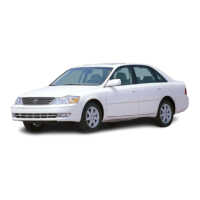

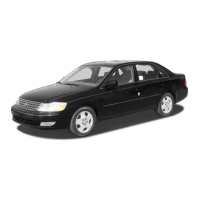

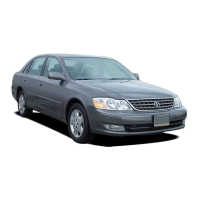


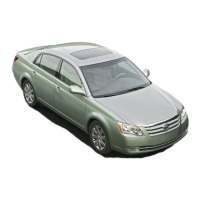
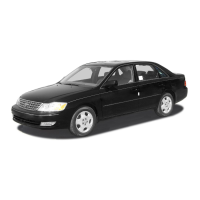
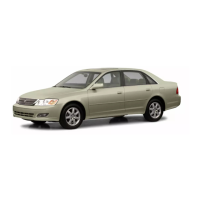
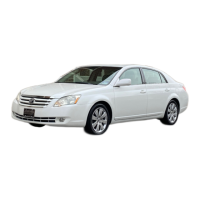
